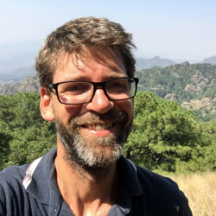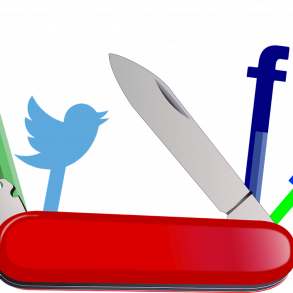By Bjørn Uldall for Enlivening Edge
Join the emerging Participatory Action Research Community at Enlivening Edge to be supported on your journey, and to co-create needed know-how.
Are you aiming to actualize the self-organizing potentials of authentic human collaboration aligned and driven by an evolutionary purpose? Are you daring to explore next-stage ideas and practices like the ones outlined in Frederic Laloux’s book on Reinventing Organizations? Are you willing to share what you are learning on this journey, with others?
If so, the Participatory Action Research Community (PARC) of Enlivening Edge is ready to companion you on this learning journey. And to generate collective know-how together that can serve others too.
Developing “Teal” organizations from scratch or by transitioning from existing ones is still very much a collective field of exploring, and of learning our ways “fearward” in practice. We notice a deep thirst for developing practical knowledge on how to grow and nurture next-stage organizations. That’s why we are passionate about
- equipping next-stage organisational developers with lightweight but robust action research based “exploration practices” and suitable companionship for their re-invention journeys
- supporting organisational re-inventors from the varying fields of expertise and experience that we and our wider network can provide in the spirit of co-creation and mutual learning
- generating quality, sharable, practical knowledge which can serve the larger movement and stimulate the emergence of next-stage organisations and social systems

Your invitation
We are launching the Enlivening Edge Action Research community with a 12-week prototype initiative. We welcome your application to join our initiative if you are:
- a leader/founder/member of an organisation that is, in some way, pursuing next-stage-organisational practices
- a consultant/coach/facilitator/mentor who is actively engaged with aspiring or existent next-stage-organisations, or who feels called to actively support such organisations
We anticipate forming one or more cohorts of 8-10 participants. And we aim for a balance between the two types of participants.
Potential benefits
You will be supported in developing your next-stage personal and organisational understanding and practice. We will pay particular attention to the aspirations, challenges, dilemmas, and questions which are most alive for you, here and now in your particular work context. You can benefit from:
- practical guidance in using action research to focus and strengthen your learning agenda and development efforts
- inspiration, challenge, encouragement, and sense-making support from your cohort as members respond to your unique learning agenda, or as you engage with their learning efforts
- generative experiences of being part of part of a conscious, self-reflective community of inquiry
- anchoring and deepening your learning by formulating and sharing the practical knowledge you are generating, along with the joy of knowing that you are making a significant contribution, to the extent that you share your learning
What is special about developing your practice through action research?
We start with the messy complex reality you find yourself in, and help you find how to go on from there. To understand your situation and options better, this may include pointing towards relevant conceptual models, theories, organisational practices and unique learning journeys of others for inspiration and expanding your perspectives.
From there, we rely on a long tradition of action research methodologies designed to develop new personal and organisational understanding and practice through personal and collective inquiry, safe-to-fail experimentation, observation and data-gathering, collective sense-making, sharing and anchoring of new knowledge.
In other words, we don’t attempt to provide any kind of “Teal organisation instruction manual”; the learning is not driven and structured by any particular theory or conceptual model, and we don’t have experts who believe they can instruct you in how to develop your particular organisation with its unique context.
Here you will get companions who are on similar learning journeys. and you can benefit from mutual inspiration, challenge and support—just like in other communities-of-practice groups.
Beyond that, in this initiative an experienced facilitator will help you develop high levels of trust and nurture your collective inquiry practices, which will allow you to explore more sensitive organizational issues and areas in your personal practice where you otherwise feel vulnerable.
By committing to disciplined learning practices and to stay together over time, your companions will get to know your story and context and be able to offer increasingly precise and relevant feedback and perspective to help you on your journey.
The Participatory Action Research tradition and approach that this initiative builds on, takes special care to generate knowledge that is practical, socially robust, and also critically and reflectively examined and captured/anchored in some kind of representation that can be shared.
This means you will better understand the quality of what you know and don’t know, and you will be better able to share your know-how with others. The commitment to identify and share your learning with your companions will in itself support and strengthen your ability to be inquiring and observant in how you go about developing your organisation and practice and getting maximum learning out of it.
What you sign up for
This initiative involves:
- An initial one-hour conversation to explore the relevance of this initiative for you, and to get you going on formulating your particular research/learning agenda.
- A series of six two-hour online group sessions scheduled every two weeks.
- The first session is dedicated to introducing the action inquiry approach, building relationships, and sharing initial learning agendas.
- The next four sessions will offer a mixture of pit-stop accounts from our on-going learning journeys, and dialogue devoted to particular cases/learning agendas.
- The final session will focus on generating instructive accounts from our three-month learning journey.
- Between group sessions, you will be invited to pair-up with a buddy (coaches/consultants may pair up with organisational practitioners) and self-organize brief touch-points/conversations, or written exchanges, to track and make sense of your everyday experiences, emerging insights. and new questions pertaining to your learning agenda.

- As part of this prototype we will also explore efficient ways to connect and communicate between sessions in order to minimize reporting time, and to maximize collaborative sense-making and mutual support time.
- We will complete the prototype by exploring how to manifest the practical knowledge we’ve created, through writing or digital formats which can be useful for others.
There will likely be further opportunities for you to continue your learning/research in the PARC.
What we expect of you
By joining this prototype initiative, these will be your commitments:
- readiness to explore and share your own personal practice and sense-making in relation to the organisational development you are involved with
- prioritizing your time so you can engage in the majority of the scheduled on-line sessions, and so you can engage with your buddy and possibly with others in your cohort between group sessions

- respect for confidentiality and sensitive information, which means not communicating what you learn about others without obtaining their explicit permission.
- agreement that all online sessions will be audio recorded for research purposes only
- readiness to contribute the knowledge you gain in forms which can be useful for others, while respecting your own integrity and that of your organisation.
This prototype will be run on gift-economy principles, which means that this initiative is offered to participants as a gift. At the end of your participation in this prototype you might in turn decide to contribute financially or otherwise to support Enlivening Edge and its Participatory Action Research Community.
Timing and Followup
The individual one-hour conversations will take place in July-August 2016, and the 6 bi-weekly whole-group sessions will be scheduled in September-November 2016. In December we will wrap up and evaluate this prototype and explore next steps for those who would like to continue their involvement in the PARC.
Who is facilitating the prototype
This initiative will be lead by Bjørn Uldall, Participative Action Research Lead at Enlivening Edge (see bio here). If you are interested in participating, please contact [email protected] Tel +45 20 70 38 07

In 2000, I left my conventional Business career (M.Sc. Int. Business Adm., Manager at Carlsberg, McKinsey consultant), went on a 10-day Vipassana retreat, and started my quest for finding more meaningful ways of building and leading business organisations. This took me through a PhD of collaborative action research with business leaders; 5 years of psychotherapy training; and many years of coaching business leaders and teams as a partner in Scanlead. I am now energizing the role of Participatory Action Research Lead with Enlivening Edge.





Ref “We welcome your application to join our initiative if you are: a leader/founder/member of an organisation that is, in some way, pursuing next-stage-organisational practices” – That’s me. Please may I join.
Regarding the organisation. I haven’t had enough clarity about what I’m doing to share many details widely – so there’s nothing on Enlivening Edge or Medium – but I have been posting some of the ongoing struggle for clarity in a much quieter corner of the internet. Perhaps these posts come under the heading of action learning.
There has been a recent “clarity spurt”. The organisation now has a name. It is called FASST – see Explaining “FASST = Freedom, Accountability and Structure for Systemic Transformation” – http://dadamacconnect.london/explaining-fasst-freedom-accountability-and-structure-for-systemic-transformation/
Great to hear Pamela. Please write me on my mail : [email protected] and I will get back to you with suggestions for scheduling a talk about this.